This article provides a quick introduction to the positions and personalities involved in the oversight of special operations forces and their employment.
Under Secretary of Defense for Policy
The Under Secretary of Defense for Policy (USD(P)) oversees the development and implementation of defense policy writ large, including policy relevant to special operations and special operations forces, and oversight of special operations employment.
Collin Kahl
Dr. Colin H. Kahl was sworn in as the Under Secretary of Defense for Policy on April 28, 2021. In this role, he is the principal advisor to the Secretary of Defense for defense policy and leads the formulation and coordination of national security policy within the Department of Defense. Dr. Kahl ensures the integration of defense policies and plans to achieve desired objectives. He is responsible for efforts to build partnerships and defense cooperation with U.S. friends and allies.
Dr. Kahl was most recently the co-director of the Center for International Security and Cooperation, the inaugural Steven C. Házy Senior Fellow at the Freeman Spogli Institute for International Studies, and a Professor, by courtesy, in the Department of Political Science at Stanford University.
He served as Deputy Assistant to the President and National Security Advisor to the Vice President from October 2014 to January 2017 where he advised President Obama and Vice President Biden on all matters related to U.S. foreign policy and national security affairs, and represented the Office of the Vice President as a standing member of the National Security Council Deputies’ Committee. Dr. Kahl has formerly served in the Department as the Deputy Assistant Secretary of Defense for the Middle East. In this capacity, he was the senior policy advisor to the Secretary of Defense for Egypt, Iran, Iraq, Israel and the Palestinian territories, Saudi Arabia, Syria, Yemen, and six other countries in the Levant and Persian Gulf region. In June 2011, he was awarded the Secretary of Defense Medal for Outstanding Public Service by Secretary Robert Gates.
Dr. Kahl was previously an assistant and associate professor in the Security Studies Program at Georgetown University’s Edmund A. Walsh School of Foreign Service, a Senior Fellow at the Center for a New American Security (CNAS), and assistant professor of Political Science at the University of Minnesota. He served as a Council on Foreign Relations International Affairs Fellow in the Office of the Secretary of Defense, where he worked on issues related to counterinsurgency, counterterrorism, and responses to failed states.
Dr. Kahl received his B.A. in political science from the University of Michigan (1993) and his Ph.D. in political science from Columbia University (2000).
Assistant Secretary of Defense for Special Operations and Low-Intensity Conflict
The Assistant Secretary of Defense for Special Operations and Low-Intensity Conflict (ASD(SO/LIC)) oversees and advocates for Special Operations and Irregular Warfare throughout the Department of Defense to ensure these capabilities are resourced, ready, and properly employed in accordance with the National Defense Strategy. In this role, the ASD:
- Exercises authority, direction, and control of all special operations peculiar issues relating to the organization, training, and equipping of special operations forces
- Is the Principal Special Operations and Low Intensity Conflict Official within the senior management of DoD
- Sits in the chain-of-command above USSOCOM for special operations-peculiar administrative matters; provides civilian oversight of special operations forces.
- Advises, Assists, and Supports the Under Secretary of Defense for Policy on Special Operations and Irregular Warfare policy matters.
In a recent congressionally-mandated reorganization, ASD(SO/LIC) became a direct report to the Secretary of Defense for all “military department-like” functions, and a peer to the departmental secretaries (i.e., the Secretaries of the Air Force, Army, and Navy). However, the ASD(SO/LIC) remains subordinate to the USD(P) for all other policy issues.
You can read more about the organizational role of ASD(SO/LIC) here: https://www.defense.gov/Newsroom/Advisories/Advisory/Article/2447997/media-advisory-on-designation-of-acting-assistant-secretary-of-defense-for-spec/
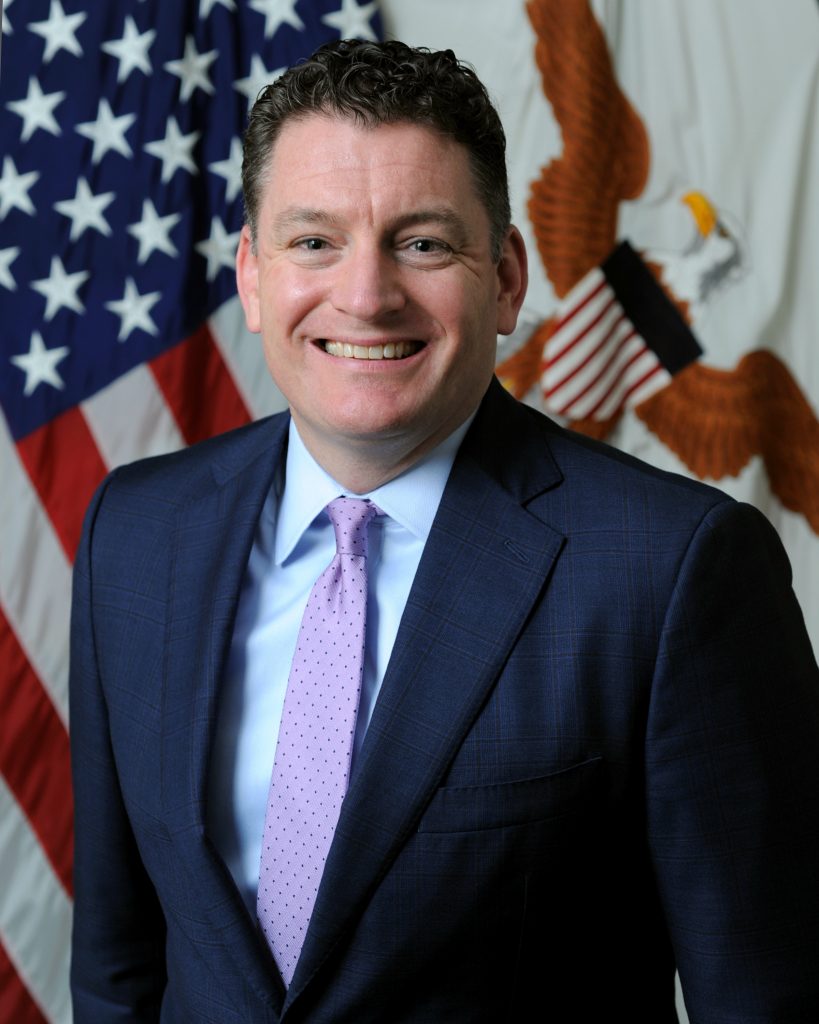
Assistant Secretary of Defense for Special Operations and Low-Intensity Conflict
(U.S. Army photo by Leonard Fitzgerald)
Christopher P. Maier
Christopher P. Maier is the Assistant Secretary of Defense for Special Operations and Low-Intensity Conflict. Among his responsibilities are all special operations, irregular warfare, counterterrorism, and information operations policy issues and the oversight of special operations peculiar administrative matters, on behalf of the Secretary.
He previously led the Department of Defense’s Defeat-ISIS Task Force from its inception until disestablishment, charged with policy and strategy development, international negotiations, oversight, authorities review, and national-level interagency implementation of the Department’s role in the U.S. Government’s campaign to achieve an enduring defeat of ISIS. In this role, he also directed the Secretary of Defense’s leadership of the Defense Ministry components of the 80+ international members of the Defeat-ISIS Coalition.
From July 2015 to September 2017, Mr. Maier served as the Deputy Assistant Secretary of Defense for Special Operations and Combating Terrorism. In this role, Mr. Maier led the Department’s policies, plans, authorities and resources related to special operations and irregular warfare, with special emphasis on counterterrorism, counterinsurgency, unconventional warfare, information operations and sensitive special operations.
Before moving to the Department of Defense, Mr. Maier held a number of positions at the National Counterterrorism Center (NCTC), including Senior Advisor to the Director, Chief of Strategic Assessments and Regional Planning, and Chief of Staff in the Directorate of Strategic Operational Planning.
From 2009 to 2013, Mr. Maier served on the National Security Council Staff as a director for counterterrorism. In addition to his government experience, Mr. Maier worked for over five years as a strategy and management consultant to a variety of commercial, government, and nonprofit organizations.
Originally from California, Mr. Maier earned degrees from the University of California, Berkeley and the Fletcher School of Law and Diplomacy at Tufts University. He is an officer in the Air National Guard.
Principal Deputy Assistant Secretary of Defense for Special Operations and Low Intensity Conflict
Katrina M. Mulligan
Katrina M. Mulligan is the Principal Deputy Assistant Secretary of Defense for Special Operations and Low Intensity Conflict (SO/LIC), a portfolio that includes special operations, irregular warfare, counterterrorism, counter-narcotics, and information operations policy issues. She also assists the Assistant Secretary of Defense for SOLIC on oversight of special operations peculiar administrative matters on behalf of the Secretary.
Katrina was previously the acting Vice President for National Security and International Policy at the Center for American Progress. She also served in senior roles in the National Security Division in the Department of Justice, the Office of the Director of National Intelligence, and at the National Counterterrorism Center.
From 2013-2014, Katrina served on the National Security Council Staff as Director for Disclosures Response where she facilitated the government’s response to unauthorized disclosures of intelligence information.
Katrina has received multiple awards for exceptional and meritorious civilian service from the Intelligence Community and Department of Justice. She is an alumna of the University of Chicago and received a juris doctorate degree from the UCLA School of Law.
Deputy Assistant Secretary of Defense for Irregular Warfare & Counterterrorism
The Deputy Assistant Secretary of Defense for Irregular Warfare & Counterterrorism (DASD(IW&CT)) is responsible for developing policy guidance and overseeing the of implementation of all DoD policies, strategies, and plans related to irregular warfare and counterterrorism. These responsibilities include:
- Oversight of special operations forces employment in counterterrorism, unconventional warfare, direct action, special reconnaissance, foreign internal defense, and counterproliferation, and other activities as specified by the Secretary of Defense;
- Counterterrorism plans, programs, actions, and requirements consistent with national strategies and DoD policy and objectives;
- Sensitive special operations, including oversight of special access programs under U.S. Special Operations Command;
- Capacity building of foreign partners to counter terrorist threats;
- Personnel recovery and hostage issues; and
- Military Information Support Operations (MISO) and Information Operations.
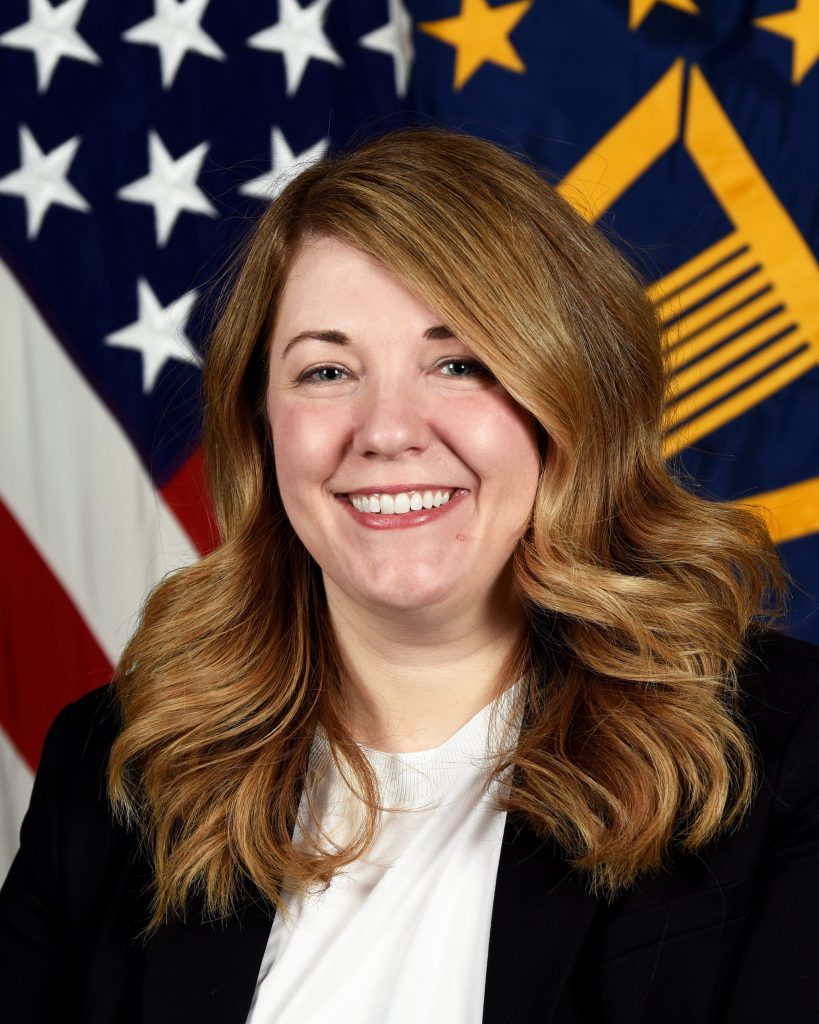
Deputy Assistant Secretary of Defense for Irregular Warfare and Counterterrorism
(U.S. Army photo by Leonard Fitzgerald)
Milancy Harris
Milancy Harris is the Deputy Assistant Secretary of Defense (DASD) for Irregular Warfare and Counterterrorism. DASD Harris is responsible for developing policy guidance and to oversee the implementation of all DoD policies, strategies, and plans related to irregular warfare and counterterrorism.
From June 2019 through February 2021, Ms. Harris concentrated on technology governance and institution building, first at Facebook and then as a founding member of the leadership team at the Oversight Board, a first of its kind initiative to provide independent oversight over Facebook’s content moderation decisions.
Ms. Harris previously spent 15 years with the U.S. Government focused on intelligence analysis and counterterrorism. From March 2017 to June 2019, she served as the Chief of Staff of the Directorate of Intelligence at the National Counterterrorism Center (NCTC), where she managed the operations of the Center’s largest directorate including personnel, strategic resource planning, and policy support.
From 2015 to 2017, Ms. Harris served as a Director for Counterterrorism on the National Security Council (NSC) staff, where she was responsible for a range of law of war issues, including detainee affairs, hostage recovery, and counterterrorism transparency. Prior to joining the NSC, Ms. Harris served as the Deputy Director of the Emerging Issues Division at the Office of the Director of National Intelligence (ODNI). In that role, she served as a special advisor to the DNI on detention issues, represented ODNI during the White House’s 2015 Hostage Policy Review, and aided in the design of the interagency Periodic Review Board process.
Ms. Harris began her career as an intelligence analyst and held positions at NCTC and the Defense Intelligence Agency related to warning, information operations, and emerging technologies. She also served as an intelligence briefer from 2006 to 2007 for the Office of the Secretary of Defense.
Originally from Wisconsin, Ms. Harris earned Bachelor of Arts degrees in International Affairs and English Literature from Marquette University and possesses a Master of Arts degree in Political Management and a Graduate Certificate in International Security Studies from The George Washington University. She lives in Arlington with her husband, Caleb.
Deputy Assistant Secretary of Defense for Counternarcotics and Stabilization Policy
The Office of the Deputy Assistant Secretary of Defense for Counternarcotics and Stabilization Policy develops DoD counterdrug (CD) and counter-transnational organized crime (CTOC) policy. It also issues guidance, establishes priorities, and oversees resource allocation and program execution, for DoD CD and CTOC missions. These missions focus on countering illicit drug trafficking, but also include countering illicit financial flows and the illicit trafficking of people, wildlife, natural resources, and weapons. Primary activities include: Coordinate and monitor DoD and interagency efforts for the detection and monitoring of the maritime and aerial transit of illegal drugs into the United States. Direct, oversee, and monitor planning, programming, and budget (formulation, justification, and execution) processes for DoD Drug Interdiction and CD Activities programs, in coordination with other DoD Components. Review, evaluate, coordinate, and monitor DoD CD and CTOC plans and programs to ensure adherence to approved policy and standards. In conjunction with the Chief, National Guard Bureau coordinate and monitor National Guard support to State drug law enforcement operations and to DoD, as required. Develop strategy, policy, plans, and programs pertaining to DoD Counter Threat Finance (CTF) activities, goals and requirements.
James Saenz
Mr. James Saenz is currently serving as the Deputy Assistant Secretary of Defense for Counternarcotics and Stabilization Policy. In this capacity, he is responsible for all policies, strategies, priorities, guidance, resource allocation, and program execution applicable to Department of Defense (DoD) activities concerning counter illicit drug trafficking, counter transnational organized crime, counter threat finance, stability operations, peacekeeping missions, and civil affairs. In addition to supporting counterdrug efforts, counter transnational organized crime activities may include support to counter the illicit trafficking of people, wildlife, natural resources, weapons, and money. Mr. Saenz provides insightful and timely policy advice to the Secretary of Defense and other senior DoD officials and he ensures essential interagency collaboration to counter illicit activity and promote global stability.
Most recently, Mr. Saenz worked for the Washington Metropolitan Area Transit Authority (DC Metro) as the Senior Operations Advisor to the Chief Operating Officer, where he developed strategies and business plans, led enterprise-wide transformation initiatives, and implemented programs to improve delivery of bus, rail, paratransit, and law enforcement services. Previously, Mr. Saenz served 30 years as a U.S. Army officer, most of that time in Special Forces (Green Berets), where he completed a variety of assignments throughout the world and commanded at all levels from detachment to brigade. Notably, he commanded two separate Special Forces detachments (A-Teams), the full-accounting mission in Vietnam, and the Army’s largest overseas garrison located in Germany. His operational and combat experience includes Operations Desert Shield and Desert Storm, numerous counter-narcotics missions in South and Central America, several disaster relief efforts in Central America, Operation Enduring Freedom, and multiple Global War on Terrorism activities at home and abroad.
Mr. Saenz holds a Bachelor of Science in Computer Science from the United States Military Academy at West Point, a Master of Military Art and Science in Strategy from the U.S. Army Command and General Staff College, and a Master of Science in National Resource Strategy from the Industrial College of the Armed Forces.
Deputy Assistant Secretary of Defense for Special Operations Policy and Programs
The Deputy Assistant Secretary of Defense for Special Operations Policy and Programs is tasked with developing policy and providing oversight of special operations capabilities and guidance on special operations and irregular warfare resources, requirements, programs, policies, strategies and plans through active collaboration across DoD and integration into DoD processes.
In more colloquial terms, the DASD SOPP manages the ASD(SO/LIC)’s responsibilities as a “secretary-like” official for oversight of the manning, training, and equipping of special operations forces. These functions are managed by the Secretariat for Special Operations (SSO). The DASD SOPP and SSO are administratively aligned with USD(P), but are functionally distinct so that they may exercise independent judgment about the needs of special operations forces. This discrepancy between the title of the DASD and the organization she oversees is due to lingering sensitivities within the DoD regarding the elevation of ASD(SO/LIC) to a “secretary-like” role.
Erin M. Logan
DASD Logan assumed her position in the Fall of 2021. In this role, she is the Senior Executive responsible for the legally mandated Secretariat for Special Operations (SSO). SSO allows the Assistant Secretary of Defense for Special Operations & Low-Intensity Conflict (ASD(SO/LIC)) to fulfill his responsibilities to exercise authority, direction, and control of all special operations-peculiar administrative matters relating to the organization, training, and equipping of special operations forces and support of the special operations command, including readiness and organization of special operations forces, resources and equipment, and civilian personnel.
For the three years prior to becoming DASD SOPP, Ms. Logan was a strategic consultant for the Defense Counterintelligence & Security Agency (DCSA). She assisted DCSA leadership in managing and overseeing over 6,000 background investigations personnel and the $1.2 billion background investigations mission, including reducing excess inventory by over 72% in two years.
In 2016, Ms. Logan was the Deputy Director for Defense Analysis & Partner Engagement (DA&PE) for the Under Secretary of Defense for Intelligence (USD(I)). She was responsible for leading the implementation of the USD(I)’s first PE Strategy, including creating synchronization tools for the 18 member Defense Intelligence Enterprise (DIE), ensuring adequate resources and policy development for PE, integrating military intelligence capacity building into security cooperation guidance and plans, and institutionalizing the new Military Intelligence Disclosure Policy Board. She also supervised the DA team providing oversight and guidance across the DIE regarding analytic integrity standards, open source policies, analytic resources, and defense intelligence priorities.
Before joining USD(I), Ms. Logan was the Director for Transnational Organized Crime at the National Security Council for 14 months where she was the President’s principal staffer responsible for the planning, development, and coordination of interagency policies to counter transnational organized crime (CTOC) globally, including counternarcotics (CN) trafficking, illicit financial crime, relevant intelligence programs and resources, synchronization with FVEY partners, and money laundering. She also helped develop and execute the President’s 2014 $750 million Central America Strategy and institute new efforts to combat TOC-related security threats emanating from Mexico.
For the six years prior to joining the NSC, Ms. Logan held a variety of leadership positions within the Office of ASD(SO/LIC). Ms. Logan spent two years as Principal Director for the DASD for Counternarcotics and Global Threats (CN>), helping to lead and run the office responsible for the oversight and allocation of DoD’s CN appropriation and for establishing DoD policies for CN, counter threat finance, counter piracy, CTOC, and counter wildlife trafficking. As Chief of Staff for ASD(SO/LIC), she directed and coordinated an ASD office of approximately 145 civilian, military, and contractor personnel; served as a primary advisor to the ASD; oversaw the ASD’s budget of over $193 million; and oversaw the management and enhanced the integration of policy making for the three DASDs that report to ASD SO/LIC, including POM submissions, SOCOM oversight, and operational issues. As Chief of Staff for the DASD for Partnership Strategy and Stability Operations she helped lead the office handling security cooperation, coalition affairs, disaster relief, humanitarian assistance, peacekeeping, stability operations, humanitarian mine action, non-lethal weapons, and JIEDDO policy and oversight.
Before joining the executive branch, Ms. Logan spent 12 years as a Senior Professional Staff Member on the Senate Foreign Relations Committee with wide-ranging responsibility for key coalition partnerships and treaties, all issues handled in the annual defense authorization and appropriations and military construction legislation, and successful efforts to more rapidly field MRAPs, modernize the C-5, bring C-17s to Dover AFB, and remove the New Castle Air Guard Base from the 2005 BRAC list.
Ms. Logan has a B.A. from Princeton University’s Woodrow Wilson School of International Affairs and an M.A. from Colombia University’s School of International and Public Affairs. She is a recipient of the Secretary of Defense’s Medal for Exceptional Service, the National Guard Association of the United States’ Patrick Henry Award, the Delaware National Guard’s Outstanding Support Award, and the Jacob K. Javits Fellowship.
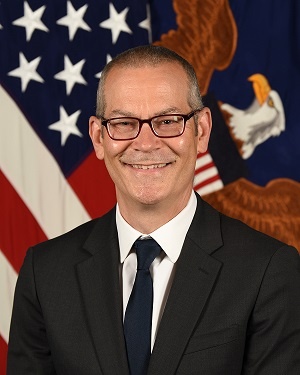
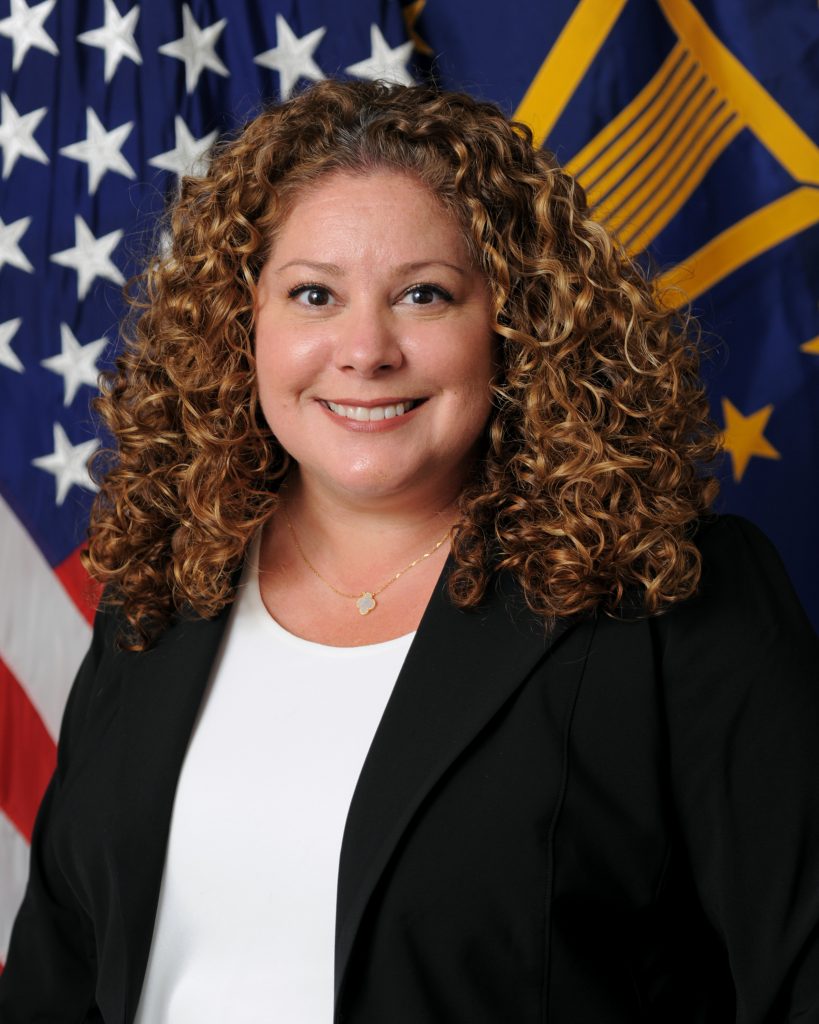
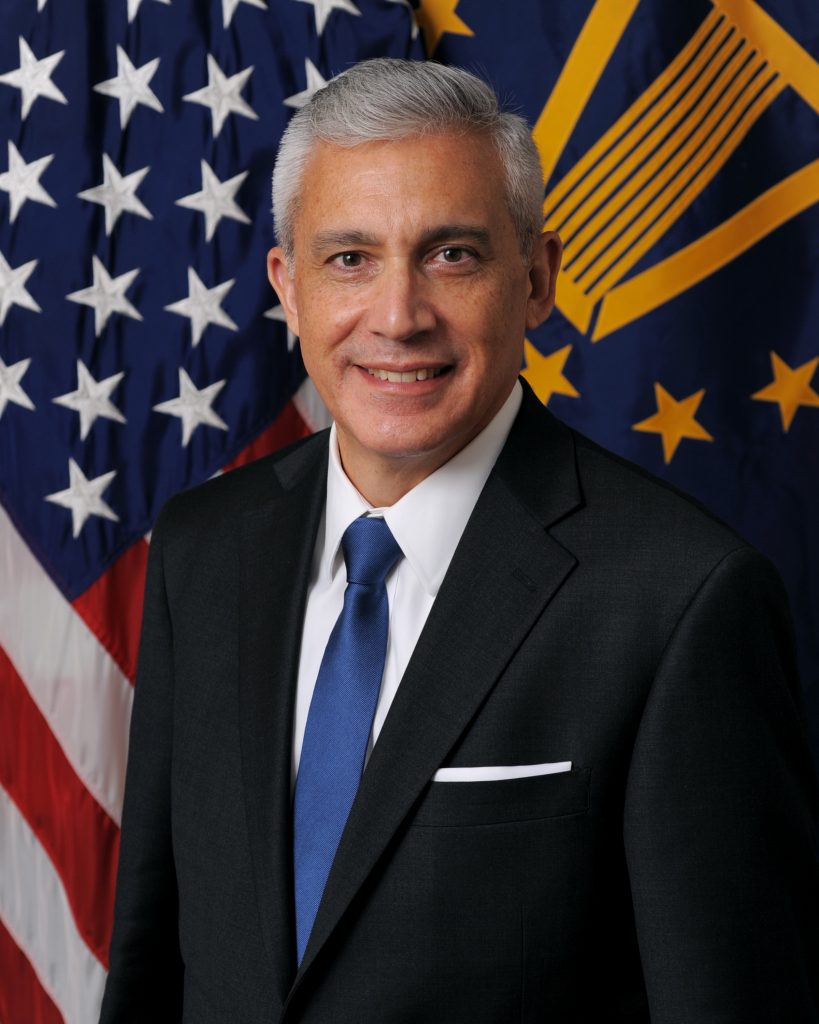

One thought on “Oversight of Special Operations – Who’s Who”